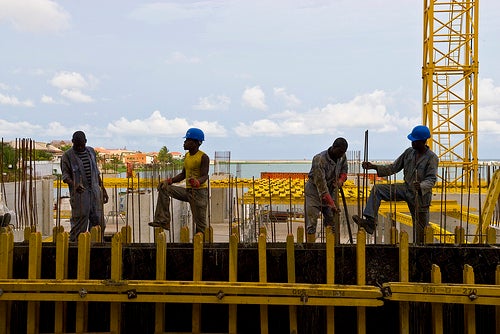
Around Christmas time and at the beginning of every academic year, I have routinely sent cash to my extended family back home in Zimbabwe. That’s been the pattern since I joined the World Bank mid-career and settled in Washington D.C. 23 years ago.
I am not alone; the number of Zimbabweans that have left the country is estimated at more than 3 million. Most have left since 2000, for reasons varying from the socio-economic to political.
Diaspora statistics from Zimbabwe make for sobering reading: 50% of all professionals have emigrated since 2000, which places the country in 10th position out of 157 countries that experience migration at this level of ‘brain drain’. This picture seems to suggest the country’s huge investment in education has been lost, yet when Zimbabwe suffered its worst economic meltdown in 2008-2009, the diaspora remitted over $1.6 billion, which accounted for more than 10% of its gross domestic product. In that time period, it was the biggest source of capital inflow and out -performed both exports earnings and development assistance.
Worldwide, members of the diaspora may or may not want to return to their country of origin, but most want to make a difference to their country by contributing money in the form of remittances, skills and knowledge – often called ‘social remittances’; establishing networks and connections; and investing in business ventures or technology transfer.
Aside from economic impact, countries that have benefitted most from their diaspora have governments that have engaged this group and implemented policies to recognize the role of the diaspora, and give them incentives to invest and reduce costs of doing business.
For those of us from Zimbabwe, relations with our home government have been strained. Members of the diaspora were denied the right to vote in the most recent elections and therefore feel alienated from centers of power. Political differences and tensions among the diaspora, and between the diaspora and the government, have impeded discussion of collaborating to improve the country’s economy.
In 2012, as part of its support to Zimbabwe’s Government of National Unity, the World Bank weighed in to help my diaspora community engage with the government. I was tasked with organizing my fellow expats to establish the Zimbabwe Diaspora Home Interface Program (ZIDHIP) and its affiliate in the United States, the Zimbabwe Diaspora Network North America (ZDNNA). Over the last ten months, we’ve designed a plan based on five priorities to contribute to the country’s development, as follows:
1) Develop an IT-based skills locator to facilitate self-reporting by diaspora-based professionals and build a database of expertise within the diaspora, which both the public and private sector can tap into;
2) Establish a think tank to share knowledge on various subjects and topics that would be available as input for socio-economic strategic planning purposes, for the public sector as well as for business decision-making. Activities would include videoconferencing, information exchange during seminars and workshops, and research papers;
3) Define investment pathways by finding partners that are ‘a good fit’, a process that is challenging because investment choices are more individualistic and a result of intensive exchanges often of a confidential nature that requires certain levels of trust. The diaspora would be networked to form resource pools to take up opportunities in both the public and private sectors;
4) Support philanthropic causes through shipping and distribution of donations of equipment and supplies for health facilities, books for schools, and clothes and other consumables for orphans; and
5) Develop programs to build public and private sector capacity through virtual training and sabbaticals, among other activities.
In August 2013, I coordinated a two-day ZIDHIP Diaspora Summit in Zimbabwe to formalize collaboration among members worldwide, including those from the United States, U.K., and East and South Africa. Since the Summit, Zimbabwe’s Minister of Finance, Patrick Chinamasa, has acknowledged the role the diaspora can play in the country’s economy and encouraged our participation in helping to build sectors such as power and agriculture, and in the resuscitation of faltering industrial companies.
The Zimbabwean diaspora is ready to contribute to its country’s development by pooling resources and investing in new ventures in mining, agriculture and financial sectors. I am very glad to contribute to these efforts.


Join the Conversation